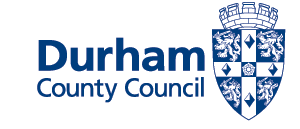Benefit cap
There is a limit on the total amount of benefits that a working age household can receive. The benefit cap applies if you receive Housing Benefit or Universal Credit.
The level of the benefit cap in County Durham is:
£423.46 per week or £1835 per month if you are a couple
£423.46 per week or £1835 per month if you have children
£283.71 per week or £1229.42 per month if you are single
The benefit cap does not apply to you if anyone in your family receives one of these disability or carer benefits:
- ESA that includes the support component
- Universal Credit that includes the work-related activity element
- UC that includes the carers element
- Carers allowance
- Guardians allowance
- Attendance Allowance
- Personal Independence Payment
- Disability Living Allowance
- Industrial Injuries Benefits
- War Pension
The benefit also does not apply in these work-related situations:
- You get Working Tax Credit
- You get Universal Credit and your net monthly earnings are at least £793 per month
- You are within the nine month 'grace period' and in each of the 12 months before your earnings went down or you stopped working, you earned the same as or more than the earnings threshold. The earnings threshold was £722 up to 7 April 2024 and £793 from 8 April 2024.
These benefits are included when working out if you are benefit capped:
- Child Benefit
- Child Tax Credit
- Employment Support Allowance (if there is no support component)
- Housing Benefit (unless you live in supported accommodation)
- Incapacity Benefit
- Income Support
- Jobseeker's Allowance
- Maternity Allowance
- Severe Disablement Allowance
- Widowed Parent's Allowance
- Window's Pension
Further help if you are affected by the benefit cap
If you receive Housing Benefit or Universal Credit housing costs element and are in financial hardship, you apply to the Council for a Discretionary Housing Payment (DHP). These are usually short-term payments until your situation improves.
You can also get advice from the Welfare Rights Service. Please Contact Welfare Rights.

 Share this page on Facebook
Share this page on Facebook
 Share this page on Twitter
Share this page on Twitter
 Print this page
Print this page





